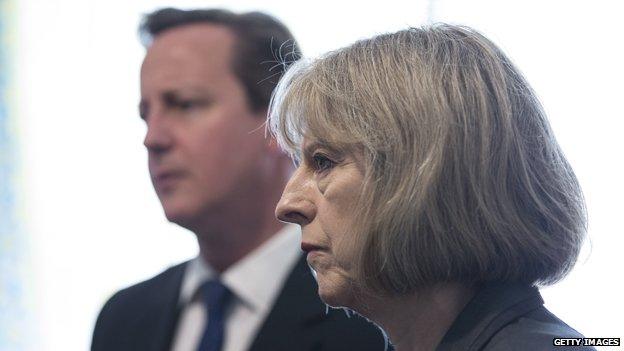The challenge of extremism
- Published
- comments

After my blog earlier this week and an appearance on the BBC News at Ten reporting on government plans to introduce extremist banning orders, it is upsetting to find myself accused of positively comparing the radical Islamist firebrand Anjem Choudary with civil rights hero Mahatma Gandhi.
I would understand people's shock and horror if I had - but I did not. Quite the reverse. Anjem Choudary is nothing like Mahatma Gandhi. Nor Nelson Mandela for that matter. Indeed, that was my point and I am saddened if it has been misconstrued.
Let me be clear what I was saying - the legislation being devised to deal with the former will need to be very carefully drafted to avoid scooping up anti-establishment figures such as the latter.
The home secretary and the prime minister are looking for a way to silence individuals whose extremist rhetoric helps radicalise people into supporting so-called Islamic State and Al Qaeda. Such support can and, tragically, sometimes does lead to violence that threatens our very way of life.
It is the responsibility of ministers to consider how to counter such threats to national security and individual safety.
But there are concerns that the definition of extremism being used by the government is too broad and risks undermining the very freedoms ministers say they are trying to defend.
The Home Office's Prevent strategy defines extremism as "vocal or active opposition to fundamental British values including democracy, the rule of law, individual liberty, mutual respect and tolerance of different faiths and beliefs".
Denying the right to free speech to anyone who falls foul of this description has already worried senior parliamentarians.
The former attorney general Dominic Grieve QC says he is concerned that extremism powers could result in people being prosecuted for having a point of view.
The former head of MI5, Eliza Manningham-Buller has similar anxieties: "I am afraid that it is a profound irony that we are seeking to protect our values against this pernicious ideology by trying to bar views that are described, too vaguely, as 'non-violent' extremist - but which fall short of incitement to violence or to racial or ethnic hatred - which is already forbidden by law."
This is the dilemma I was highlighting. Putting new powers into statute may deal with one immediate problem, but some speculate how a future government might exploit such powers to silence dissent and criticism.
There is an irony in this, not lost on the prime minister and home secretary. They wish to defend fundamental British values such as free speech, but to do so they find themselves looking at ways to deny some that very right. It is far from easy.